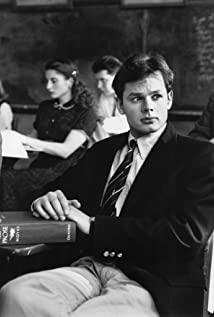Beethoven's influence on Western culture should exceed the imagination of the Eastern people. Not only in the field of classical music, Beethoven has an important position in philosophy, ideology and even politics. His alive fame and the ever-increasing fame in future generations are inseparable from the needs of the times and the pursuit of everyone, which can be described as the birth of a "myth".
The rise of Beethoven's myth is closely related to ear diseases. Whether it is a biography or a movie, ear disease is an important fact that cannot be avoided. Although it caused a devastating blow to Beethoven's life, Beethoven's strong will made the impossible possible, instead reaching the highest achievement of a musician. This strong contradiction enhances the tragedy; it makes his success even more incredible, which in turn gives people the impression of a superman.
Since it is showing the "myth", it is understandable that the film lacks authenticity. It is a typical biographical film, which is based on historical data and has elements of exaggeration, exaggeration, and second creation. It can play the role of classical music propaganda, but due to the lack of authenticity, if it is fully believed, it will cause some misunderstandings of historical figures.
This film uses the suicide note as a clue to trace Beethoven's young to old life. Different characters relay their own memories. This "old-fashioned" narrative is an imitation of the famous film "Citizen Kane".
The script characters are better shaped. The three heroines are not necessarily beautiful, but each has its own characteristics, making people impressive. For example, the gentle Giulietta admires Beethoven's talents. Beethoven has offered her an offer; he improvised the moonlight sonata for her, and found himself angrily leaving when tested. At this time, the audience knew that Beethoven's ear disease prevented him from playing freely, nor could he marry the girl he loved, let alone let other people know that he was irritable. There is also the noble countess, who fully supports his career and life. The third is the younger sister-in-law Joahnna, who lacks the noble elegance, has stubborn and indifferent eyes and a firm sense of strength. He has a humble background and a noble personality. Regardless of authenticity, the cohesion of the plot is complete and smooth.
Casting is a big advantage. Mr. Oldmann has excellent styling and acting skills. In addition to Beethoven's iconic lion-like curls, Mr.'s deep blue eyes are a window that expresses Beethoven's pure spirit. The artist’s joy, sorrow, depression, pain, longing, simple kindness, and innocent heart are all thoroughly displayed through subtle expressions and eyes (the makeup at his deathbed is a bit exaggerated, and Beethoven should not be so old when he died. Wrinkles and gray hair).
The director's handling of the soundtrack can be described as diligent. The second movement of the Seventh Symphony is used many times in the film as the background music Score Music. Its heavy rhythm implies that Beethoven is carrying a cross of ear diseases and is walking alone in the pursuit of ultimate art. It exaggerates the tragic nature of Beethoven's life, and also reflects the myth and superhuman color.
In the performance of the Ninth Symphony, the scene of young Beethoven rushing through the jungle to see the stars is not only a narrative but also a montage of sound and picture. The starry sky echoes the melody of "Ode to Joy", implying that Beethoven's heart is the universe and the mind of all mankind, and it means that the world is united. The lyrics of "Ode to Joy" must best reflect Beethoven's vision of harmony for all mankind, which is why the composer put it in the final movement of the great chorus symphony.
Choose famous works for the soundtrack, which will help the audience understand Beethoven’s music. The Sad Sonata, Moonlight Sonata, Piano Concerto No. 5, and Symphony No. 9 are played by characters in the film as Source Music. However, in order to comply with the needs of the script, the plot of the performance lacks authenticity. Historically, the first performance of the Ninth Symphony was when he conducted the orchestra himself and was a great success. Even though he was almost completely deaf at that time, he could not hear the band and applause, and it did not affect the performance. In the film, the ninth symphony was conducted by others, and the composer appeared abrupt in the middle of the stage, which did not conform to the convention etiquette of the concert. In addition, the Fifth Piano Concerto was premiered by other pianists at the time instead of Beethoven himself. It is impossible to have a performance accident, audience ridicule, and the countess's stepping down. For famous musicians, such a scene violates professionalism and is impossible.
As the critic Hoffmann said, Beethoven was the first person in romanticism. The essence of romanticism is to point to inner activity. The director's handling of music and plot is also romantic, focusing on psychological depiction. But the authenticity of Carl's son's setting is not strong. Beethoven competed for Carl’s custody rights, prevented his mother from seeing him, ignored his son’s true talents and personality, followed in the footsteps of his irritable and totalitarian father, etc. These plots were inspired by the 20th century psychology research, with the purpose of shaping characters, but not Does not conform to the original appearance of historical figures.
This is not a documentary and does not accurately restore history. It is a drama based on the theme of great men, so it can only be evaluated from the perspective of drama.
View more about Immortal Beloved reviews











